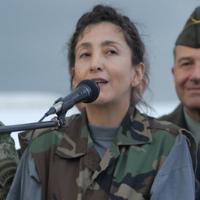Since her spectacular liberation last week along with 14 other hostages, the former Colombian presidential candidate Ingrid Betancourt has been received in France as a "heroine" (as the cover of one French weekly put it). Over the last year, the French government and President Nicolas Sarkozy have publicized their efforts to obtain the release of Betancourt, who also has French citizenship and whose two children live in France. But how much did the French efforts ultimately contribute to the liberation of Betancourt and the other hostages? And what, more generally, have been the effects of French diplomacy upon the conflict opposing the Colombian government and the rebel Revolutionary Armed Forces of Colombia, or FARC. John Rosenthal spoke with Daniel Pécaut, one of France's leading authorities on Colombian politics.
John Rosenthal: Following the liberation of Ingrid Betancourt and the other hostages in Colombia, a polemic has developed in France: provoked, notably, by some remarks made by former presidential candidate Ségolène Royal. Royal warned against what she called the "political exploitation" of the event and said the French government and President Nicolas Sarkozy had, in any case, "played no role whatsoever" in obtaining the hostages' freedom. Do you think that's correct? How would you evaluate the French role, if any?
Keep reading for free
Already a subscriber? Log in here .
Get instant access to the rest of this article by creating a free account below. You'll also get access to two articles of your choice each month and our free newsletter:
Subscribe for an All-Access subscription to World Politics Review
- Immediate and instant access to the full searchable library of tens of thousands of articles.
- Daily articles with original analysis, written by leading topic experts, delivered to you every weekday.
- The Daily Review email, with our take on the day’s most important news, the latest WPR analysis, what’s on our radar, and more.

